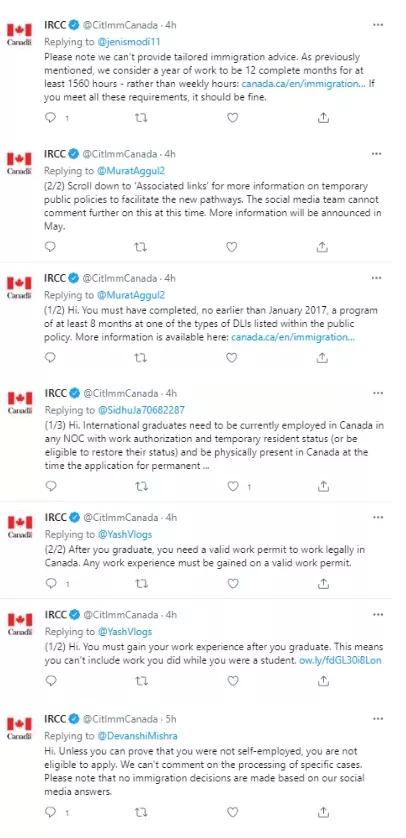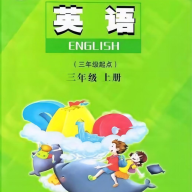想知道‘谢谢’用英语怎么说?点这里揭晓答案!
Thank You, in All Its Forms

When you want to express gratitude in English, "thank you" is the most straightforward and commonly used phrase. However, the English language offers a rich variety of ways to convey appreciation, depending on the context, the formality of the situation, and the depth of your thanks. Here, we explore some of the most popular and effective expressions of gratitude in English, providing a nuanced understanding of how to say "thank you" in various scenarios.

Basic Expressions

1. Thank you.

This is the most basic and universal way to express gratitude. It works in almost any situation, whether you're thanking a friend for a small favor or a colleague for their help at work.
2. Thanks.
A shorter, more casual version of "thank you." It's often used in informal settings or when speaking quickly.
3. Thanks a lot.
Similar to "thanks," but with added emphasis on your gratitude. It's suitable for situations where the favor was significant or where you want to show extra appreciation.
4. Thank you very much.
A polite and formal way to thank someone. It's often used in more structured environments, such as business meetings or formal dinners.
Expressing Appreciation with Added Warmth
5. I really appreciate it.
This phrase adds warmth and sincerity to your thanks. It shows that you genuinely value what the other person has done for you.
6. I appreciate your help/support/kindness.
By specifying what you appreciate, you make your gratitude more personal and meaningful.
7. I'm really grateful for your help.
"Grateful" implies a deeper sense of appreciation and thankfulness. It's often used when someone has gone above and beyond what was expected.
8. I can't thank you enough.
This expression conveys that your gratitude is boundless and that you're deeply thankful for what the other person has done.
Formal Expressions
9. Thank you very much indeed.
A more formal version of "thank you very much." It's suitable for written communication, such as emails or letters, or in situations where a higher level of formality is required.
10. I am deeply grateful for your assistance.
This phrase is highly formal and is often used in written documents or in situations where you want to show extreme appreciation, such as in academic or professional contexts.
11. Please accept my heartfelt thanks.
A formal and sincere way to express your gratitude, often used when writing a thank-you note or letter.
12. I would like to express my sincere gratitude for your help.
This sentence is structured and formal, making it suitable for a professional or academic setting.
Adding Warmth and Detail
13. I really couldn't have done it without you.
This expression highlights the other person's importance in helping you achieve something. It's great for showing how much you rely on and appreciate them.
14. Your help made all the difference.
By acknowledging the impact of their help, you're showing that you recognize and appreciate their efforts.
15. I don't know how to thank you.
This phrase can be used when you feel overwhelmed by someone's kindness or generosity. It shows that you're deeply touched and don't have words to fully express your gratitude.
16. You've been a huge support to me.
This sentence emphasizes the ongoing nature of their support and shows that you value their presence and assistance.
Casual and Colloquial Expressions
17. Cheers!
A casual way to say "thank you," often used in Britain and Australia. It's suitable for informal settings, such as with friends or in a relaxed work environment.
18. Thanks a million!
A fun and exaggerated way to express gratitude. It's great for adding a bit of humor and personality to your thanks.
19. You're a lifesaver!
This phrase is used when someone has done something truly significant or helpful, often in a time of need. It shows that you're deeply relieved and grateful.
20. I owe you one.
A colloquial way to say that you're in debt to someone for their help. It's often used in playful or friendly contexts.
Responses to Thanks
When someone thanks you, it's important to know how to respond gracefully. Here are some common responses:
1. You're welcome.
The most common and straightforward response. It means "it's no problem" or "don't worry about it."
2. Don't mention it.
Another way to say "you're welcome." It implies that the help was nothing out of the ordinary.
3. Anytime!
This response shows that you're happy to help and would do so again without hesitation.
4. My pleasure.
A polite and formal way to respond. It means "I was happy to do it" or "it was my pleasure to assist you."
5. It was nothing.
A humble response, indicating that the help was minor and that you didn't mind doing it.
6. No problem at all.
This response emphasizes that the help didn't cause you any trouble or inconvenience.
Conclusion
In English, there are many ways to say "thank you," and the choice depends on the context, the formality of the situation, and the depth of your gratitude. From the basic and universal "thank you" to the more formal "please accept my heartfelt thanks," the language offers a rich tapestry of expressions to convey appreciation. By using the right phrase, you can show your gratitude in a way that is both sincere and appropriate. So, next time someone does something nice for you, remember to choose the perfect "thank you" to match the occasion.
- 上一篇: 卫生间防水补漏秘籍:轻松打造滴水不漏的浴室空间
- 下一篇: 秋日滋养秘籍:自制美味秋梨膏教程
-
 想知道'祝你开心每一天'用英文怎么说?点击这里,让快乐无国界!资讯攻略12-09
想知道'祝你开心每一天'用英文怎么说?点击这里,让快乐无国界!资讯攻略12-09 -
 《想知道《阿凡达2》何时震撼上映吗?点击这里揭晓答案!》资讯攻略04-02
《想知道《阿凡达2》何时震撼上映吗?点击这里揭晓答案!》资讯攻略04-02 -
 帽子用英语怎么说?快速掌握!资讯攻略12-02
帽子用英语怎么说?快速掌握!资讯攻略12-02 -
 纸质成绩单用英语怎么说?资讯攻略01-09
纸质成绩单用英语怎么说?资讯攻略01-09 -
 如何用英语说'谢谢'?资讯攻略10-27
如何用英语说'谢谢'?资讯攻略10-27 -
 掌握英文表达:“谢谢”怎么说?资讯攻略11-15
掌握英文表达:“谢谢”怎么说?资讯攻略11-15











